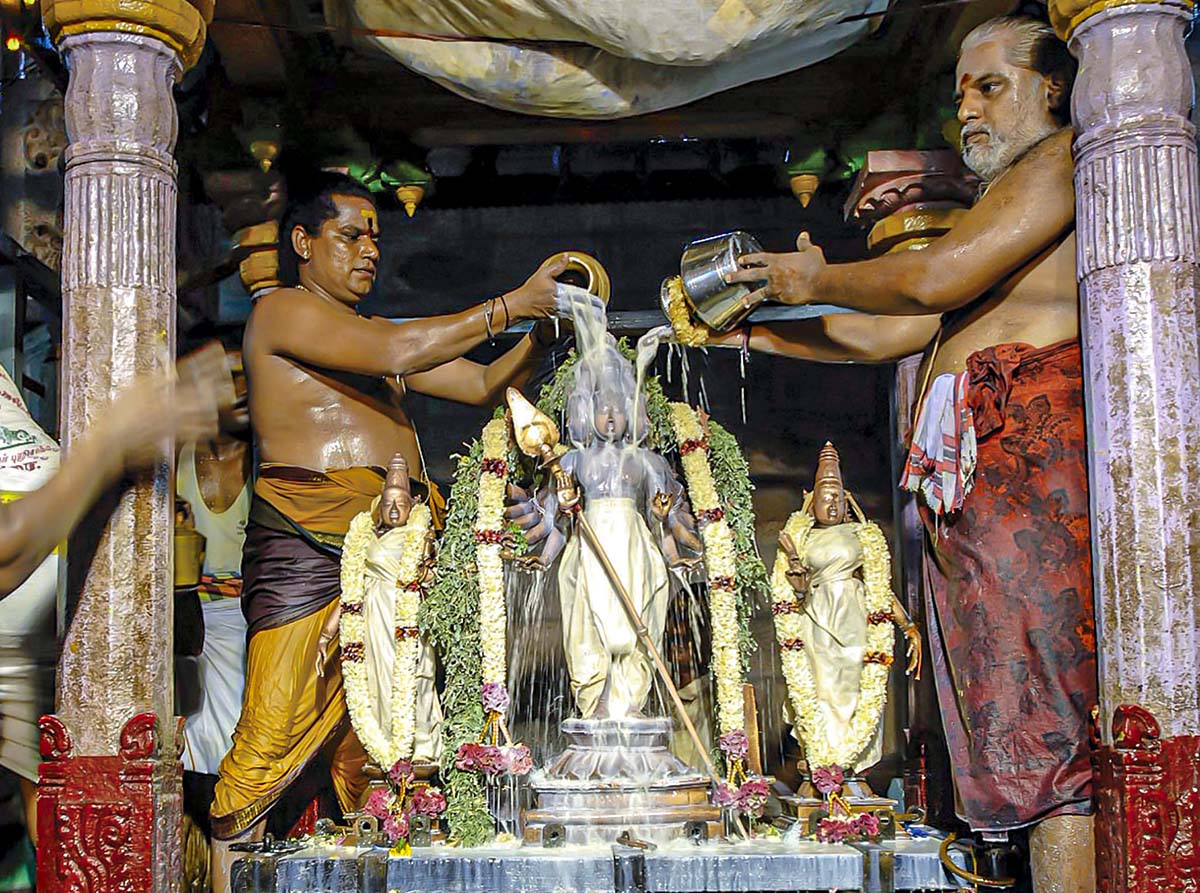A satguru’s unequivocating insights on the Earth’s oldest living faith
FROM THE TEACHINGS OF SATGURU SIVAYA SUBRAMUNIYASWAMI
Religion is man’s association with the Divine, and the ultimate objective of religion is realization of Truth. Forms which symbolize Truth are only indications; they are not Truth itself, which transcends all conceptualization. The mind in its efforts to understand Truth through reasoning must always fail, for Truth transcends the very mind which seeks to embrace it. Hinduism is unique among the world’s religions. I boldly proclaim it the greatest religion in the world. To begin with, it is mankind’s oldest spiritual declaration, the very fountainhead of faith on the planet. Hinduism’s venerable age has seasoned it to maturity. It is the only religion, to my knowledge, which is not founded in a single historic event or prophet, but which itself precedes recorded history. Hinduism has been called the “cradle of spirituality,” and the “mother of all religions,” partially because it has influenced virtually every major religion and partly because it can absorb all other religions, honor and embrace their scriptures, their saints, their philosophy. This is possible because Hinduism looks compassionately on all genuine spiritual effort and knows unmistakably that all souls are evolving toward union with the Divine, and all are destined, without exception, to achieve spiritual enlightenment and liberation in this or a future life. ¶Of course, any religion in the world is a mind stratum within people, isn’t it? It is a group of people who think consciously, subconsciously and subsuperconsciously alike and who are guided by their own superconsciousness and the superconsciousness of their leaders which make up the force field which we call a religion. It does not exist outside the mind. People of a certain religion have all been impressed with the same experiences. They have all accepted the same or similar beliefs and attitudes, and their mutual concurrence creates the bonds of fellowship and purpose, of doctrine and communion.
The Joys of Hinduism
Tonight we want to speak on the joys and happiness found in Hinduism, our ancient religion which brings forth the wonderful feelings of a belief in the cosmic processes of reincarnation coupled with knowledge of the laws of karma and the wisdom of dharma in which everyone has his rightful place and purpose in life. It brings the broadmindedness of total acceptance of all other religions as expressions of the One God’s creation, the blessing of a complete devotional path revolving around powerful temples, the fulfillment of a profound mystical teaching founded on yoga and brought forth by the seers and saints and gurus, and so much more. Our religion is so strong, so rich and varied that very few can claim to understand it in its completeness. It is immense, an immense religion, so immense that we have difficulty sometimes explaining it to those who hold to a simpler doctrine, especially if they have been subjected to erroneous concepts about our religion promulgated by invaders and missionaries of a score of alien religions. It is time that the world knew of the greatness of Hinduism, knew it as it is. Of course, we cannot explain it in an evening. My satguru, the great Siva Yogaswami of Columbuthurai, would say, “The time is short and the subject is vast.” But we can have a look at some of the aspects of Hinduism that bring such joys and happiness to over a billion devotees around the world. ¶Each Hindu’s belief in reincarnation is so strong that it totally eliminates the fear and dread of death. No true Hindu really fears death; nor does he look forward to it. The word death in the vocabulary of the Hindu holds a different meaning. He does not take death to be the end of existence; nor does he look upon life as a singular opportunity to be followed by eternal heavenly existence for those souls who do well, and by unending hell for those who do not. Death for the Hindu is merely transition, simultaneously an end and a new beginning. Over two thousand years ago, Saint Tiruvalluvar wrote, “Death is like falling asleep, and birth is like awakening from that sleep” (Tirukural 339). In one of the ancient languages of our religion, the physical body had a name which literally meant “that which is always dropping off.” ¶The Hindu’s knowledge of reincarnation gives him the hope of attaining a future birth and in that birth making further progress toward the perfection that he intuitively knows is his atman, his soul. He is working in this life to gain enough good merit, enough punya, to deserve welcome into a fine religious family as a good soul that will not upset the family but add to its love and harmony and productivity. That is one aim ever on the mind of the devout Hindu, to live well that he may live even more perfectly in a future life on this planet. That is our aim; and our other beliefs, our accumulated knowledge and the many facets of our religion, give us the strength and the wisdom to believe in such a far-reaching way, to look beyond the immediate day-to-day concerns into our ultimate objective, which is realization and liberation, moksha. ¶Nor is this belief in the cycles of earthly existence, in reincarnation, merely a belief. It is a certain knowledge for those who have had even a tiny glimpse into their origins to the point of remembering another life or just intuiting that the soul did not come into existence just before one’s birth. The Hindu believes that the soul undertakes many sojourns on the planet. We see the wisdom in this cycle of birth, death and rebirth.
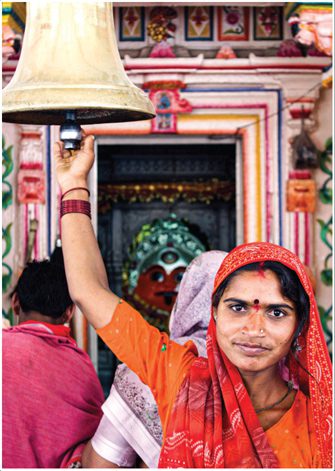

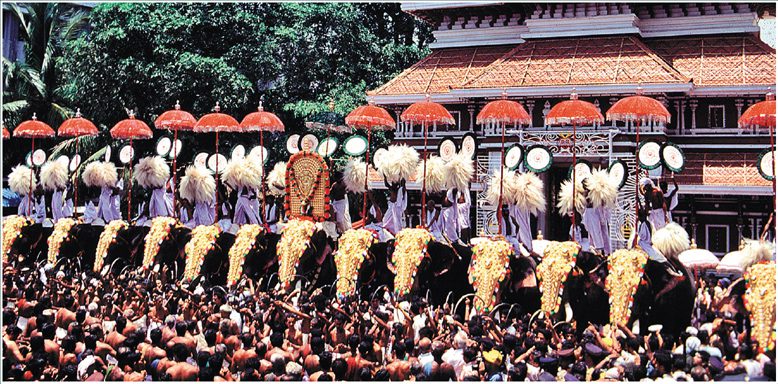

Karma Is Always Just: We see reincarnation as an explanation for many of the apparent inequalities observed in life. Thus we understand the fairness even in a bad birth, say a birth as a cripple or a child who dies in infancy. To the Hindu this is not an accident, but is a natural event brought forth by the soul itself through the karma of unseemly acts and desires in a previous life. To the Hindu there is not one force in the universe at work to make all things good and an opposing force trying to destroy the soul. No. All is God’s work. All karma is natural and worthy of the soul to which it comes. ¶The Hindu knows that it is the younger souls who lack understanding, who cannot live in harmony with others and who shun the higher forms of culture and faith. Rather than inheriting eternal suffering for their acts, they earn instead another opportunity for experience, for learning, for evolving. The ideas of sin and evil are different in Hinduism from the concepts held by Abrahamic religions. If there is such a thing as sin to the Hindu, it is the breaking of the natural laws, a lapse in the patterns of karma and dharma, and that transgression brings its own punishment in the form of an additional karma created to then be worked out. Thus the Hindu does not live in fear of sin or under the notion of original sin. We do not look upon humanity as inherently sinful, but inherently perfect and striving to unfold that perfection from within. The Hindu knows that we will have as many opportunities as needed to refine and evolve our nature—a thousand lives or more if needed. We don’t have to think that we only have a single chance, a one life in which everything must be accomplished and all desires must be fulfilled. Therefore, we are not in a hurry. We are patient. We exhibit more patience with circumstances than do those who believe in a one life, and we are more forgiving of ourselves when we fall short. Thus it is that Hinduism offers a great joy to its followers—a blessing of fearlessness in the face of death, an assurance of the continuation of consciousness after physical death, another assurance that each soul creates its own karma and that such karma is just and right, even when it seems that some people are less fortunate than others and that fate has unfairly given all the advantages to a few. All these things are bestowed on Hindus simply because they understand the doctrine of reincarnation. ¶Hinduism is a hopeful and comforting religion. Hope for a future life makes this life worthwhile, joyous, contented and happy, because the Hindu can live and deal with current problems knowing that they are transitory problems, that they will not last forever; nor will they affect us forever. They are problems; we cannot deny that. But they are problems to be worked out with a positive attitude and a high energy and a helping hand from our Gods.
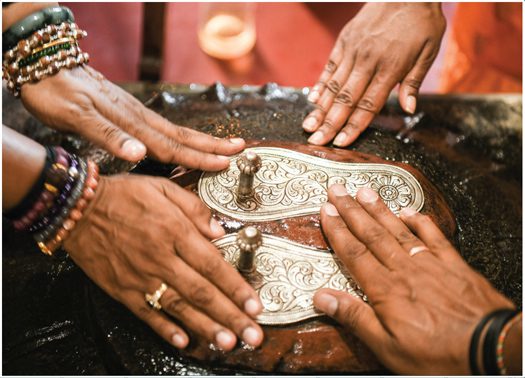

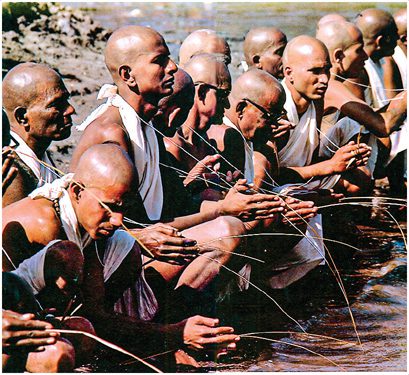

The World as Our Teacher: The Hindu also wants to improve conditions in the world, in the physical world. We do not look upon all that happens to us as unreal. That is a misconception. It is real. Life is real. It is through life that we progress. Life is the means provided by the Primordial God for finding Reality. True, it is maya. But it is maya in the form of mind, in the form of form. Maya, or form, or mind, is created for a purpose, to help man evolve, not to bind him in illusion. The Hindu understands this. We want to help humanity, and simultaneously we know that we may well return in another physical body. So we are working not only for ourselves, but for our loved ones, not only now, but in the future as well. We are improving the world for future generations in which we will play a part. ¶Through our knowledge of reincarnation, we have a great love and understanding for every human being, for they have been our mothers, our fathers, our sons and daughters, our grandparents and companions in many past lives, or perhaps will be in a future incarnation. This expanded knowledge of the interrelatedness of humanity brings with it a deepened appreciation, helping us to understand why it is that some people seem so close to us though we hardly know them and others are strangers or even enemies after years of close association. To the Hindu, everyone younger is his brother or sister. Everyone older is his mother or father, and he maintains a deep respect for others. We have this knowledge by having lived through many hundreds of lives on this planet and having been associated with many thousands of people. We know that in our current pattern in this life we often attract those to us whom we have been with in past lives. So we have a great joy and happiness in meeting them again and a deep knowledge of our relationships, our psychic relationships, with them in past lives. ¶The Hindu believes in the law of karma, the ability to earn one’s rewards as well as punishments. All this we can do ourselves with the help of our Gods and our personal relationship with our Ishta Devata, the individual God that we have chosen, or rather that God who has chosen to love, guide and protect us through an incarnation. ¶In Hinduism, there is no priest standing between the devotee and God. The priest is a servant of the God, just as is every other devotee. Even the satguru, the spiritual teacher, does not stand between the disciple and God, but seeks instead to strengthen the devotee’s direct experiential relationship with the Divine. The Hindu thus finds a great joy in his relationship with God and the Gods. It is his relationship, and he alone is able to perpetuate it. No one can do this work for him or on his behalf. There is a great happiness there between the devotee and the God resident in the Hindu temple, which is the communication point with the God, as is the sacred home shrine.
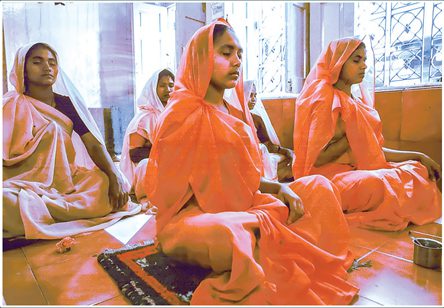

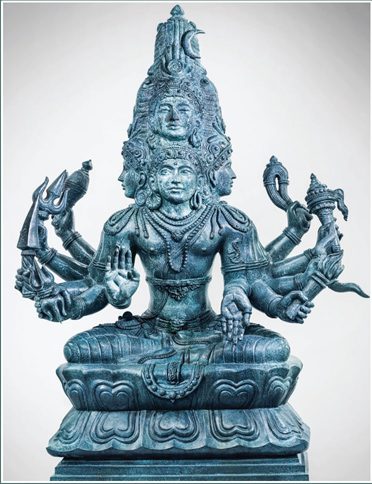

The Joy of Pilgrimage: In our religious life, one of the most fulfilling aspects is pilgrimage. We have a joy in looking forward to a spiritual journey, and we experience a contentment while on our pilgrimage and later bask in the glowing aftermath of the pujas. It is like going to see a great friend, a devotee’s most loved friend—the Ishta Devata. We travel to the far-off temple where this great friend is eminently present. At that particular temple, this personal God performs a certain function, offers a specific type of blessing to pilgrims who make the pilgrimage to that home. In this way, different temples become famous for answering certain types of prayers, such as requests for financial help, or prayers for the right mate in marriage, prayers to be entrusted with the raising of high-souled children, or help in matters of yoga, or help in inspiring bhakti and love. ¶The Hindu does not have the feeling of having to take a vacation to “get away from it all.” We don’t lead a life of mental confusions, religious contradictions and the frustrations that result from modern hurried living. We lead a moderate life, a religious life. In living a moderate life, we then look at our pilgrimage as a special moment, a cherished time of setting ordinary concerns aside and giving full stage to our religious longings. It is a time to take problems and prayers to our personal God. ¶Unlike the proud “free thinkers” who deem themselves emancipated, above the religious life, we Hindus feel that receiving the darshana from the Gods and the help that comes therein invigorates our being and inspires us to be even more diligent in our spiritual life. Unlike the rationalists who feel confident that within themselves lie all the resources to meet all needs, and that praying to Gods for help is a pathetic exercise in futility, the Hindu wisely submits to the Divine and thus avoids the abyss of disbelief. ¶All in life that one would want to “get away from” the Hindu takes with him on a pilgrimage to the temple, to the feet of his personal God, to the inner-plane being or Mahadeva, who needs no physical body with which to communicate with people—to the God who has a nerve system so sensitive and well developed that as it hovers over the stone image, which looks similar to how the Deity would look on the inner planes, this being of light can communicate with the pilgrims who visit the temple. This being of light, this Mahadeva, can and does absorb all of the dross the devotees have to offer, and gives back blessings which bring happiness and release to them. Thus, the pilgrimage is not travel in the ordinary sense of travel, but rather going to see a personal friend, one who is nearest and dearest, but does not live in a physical body. ¶The Hindu has another great joy—the certainty of liberation. Even in difficult times, we are solaced in the knowledge of our religion which tells us that no soul that ever existed or ever will exist in future extrapolations of time and space will ever fail to attain liberation. The Hindu knows that all souls will one day merge into God; and he knows that God, who created all souls, slowly guides our maturing into His likeness, brings us back to Himself, which is not separate from ourselves. The Hindu, through striving and personal development in this life on this planet, knows that liberation into God is the final goal. This knowing and this belief release us from any ego, from any superiority by which one person considers himself or herself as especially meriting God’s grace while others are lost. For the Hindu, there is an assurance that all souls will eventually enjoy liberation, and that includes ourselves and all of our friends and family. We need never fear otherwise.
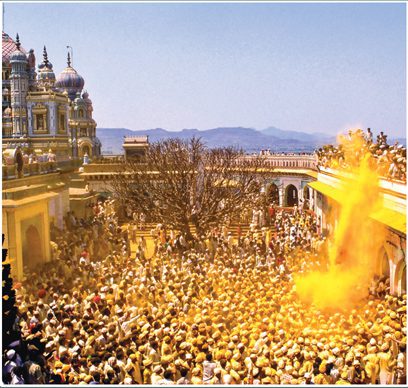



The Joy of Mysticism: Then there is the joy of the mysticism of Hinduism. It is the world’s most magical religion, offering worlds within worlds of esoteric discovery and perception. The inner worlds are what Hindu mystics tell of in the greatest richness and freedom of expression that exists on the planet. Mysticism in Hinduism is more out-front than in all the other religions of the world. As a result, it is enjoyed by more of the people in our religion. Mysticism is discussed more broadly and not limited to a few great souls or a handful of pandits. The mysticism of Hinduism is for all the people; yet, too, in its esoteric aspect it is protected at its core and kept sacred by being kept secret. How grand is the Hindu mystical tradition, with its sadhanas and yogas, with its wealth of understanding of the etheric bodies, of the nadis and the chakras, of the aura and the pranas, of the various states of consciousness and levels of existence, and so much more. No other religion on the Earth can ever begin to equal Hinduism’s mystical teachings; all that wealth is the rightful inheritance of each Hindu. ¶The Hindu enjoys all the facets of life as transmuted into a religious expression in art. The Hindu’s art is a religious art—drawing, painting and sculpture of the Gods, the devas, and the saints of our religion. The music is devotional and depicts the tones of the higher chakras, echoes the voices of the Gods; and the dance emulates the movements of the Gods. We are never far away from sights, sounds and symbols of our religion. A mountaintop represents Lord Siva; a hill represents Lord Murugan, Karttikeya; and sugarcane fields represent Lord Ganesha. Everything that one sees on the planet represents something religious. Art is not merely for egotistical and existential self-expression, but for spiritual expression, done consciously in service to the Divine. That is why one seldom sees or even knows the name of the artist of the great Hindu artistic creations. The artist is not creating in order to become famous or rich. He is surrendering his talents, serving his Gods and his religion through his art, and his art takes on a certain sacredness. ¶One great joy that the Hindu has is the appreciation for all other religions. Hinduism is theocentric, that means God-centric; whereas most other religions are prophet-centric, revolving around the personality of some living person or some person who once lived in history and interpreted religion to his culture in his time. Hinduism has no founder. It was never founded. It has neither a beginning nor an end. It is coexistent with man himself. That is why it is called the Sanatana Dharma, the Eternal Path. It is not one man’s teaching or interpretation. It is not limited to a single facet of religion, but consists of the entire spectrum, seen in its various components as if through a prism. It does not say that this religion is wrong and this one right. It sees God everywhere, manifesting all the great religions. The Hindu can appreciate Buddha without becoming a Buddhist. He can understand Jesus without becoming a Christian. Therefore, the joys of all the religions of the world become the joys of the Hindu. ¶But as Hindus, we must first think of the joys and happiness within our own religion. Consider our blessings. Come closer to the Gods of our religion. The many Gods are in the Western world now and have circumferenced the planet with their shakti of radiant rays that penetrate with spiritual power, bringing harmony and culture, balancing out the dharma of the planet. ¶Hinduism is such a great religion. All practicing Hindus are very proud of their religion. Unfortunately, these days too many born into the religion are not all that proud to be Hindus, but this is slowly changing. Hindus are now welcoming into their religion others who are, of their own volition, adopting or converting into the Sanatana Dharma. They are proud enough of their faith to want others to share its wisdom, its mysticism, its scriptures, its broadmindedness, its magnificent temples and its final conclusions for all mankind. To all Hindus, who today are found in every country on the Earth, I say: Courage! Courage! Courage! Have the courage to know beyond a doubt that Hinduism is the greatest religion in the world. We must be proud of this.
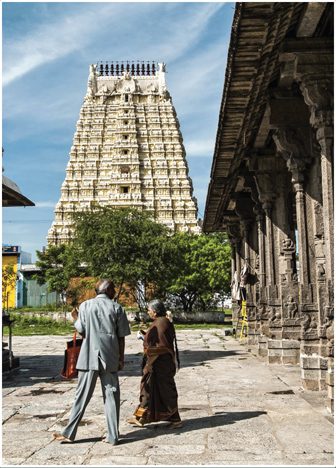

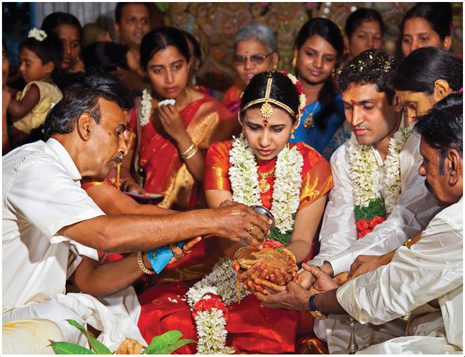

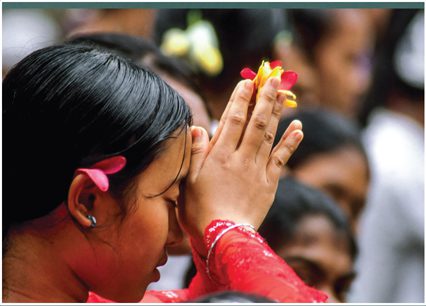



Hinduism Cannot Be Destroyed: It is false to think that one has to be born a Hindu in order to be a Hindu. That is a concept postulated by certain caste-based Hindu lineages and reinforced by the Christians in their effort to hinder the growth of our religion, to deprive it of new life, to hold it down while they in turn try to convert Hindus en masse to their religion. Swami Vivekananda (1863–1902), a Hindu monk and missionary who wrote extensively on the Hindu Dharma, when confronted by this same issue in the West would explain how Hindus who have been converted by force should not be denied an opportunity of returning to their ancestral religion. As for the case of those not born into Hinduism who might be interested to join it, he simply said, “Why, born aliens have been converted in the past by crowds, and the process is still going on.” Dr. S. Radhakrishnan (1888–1975), the distinguished Hindu philosopher who became the second president of India, confirms this view in writing, “In a sense, Hinduism may be regarded as the first example in the world of a missionary religion. Only its missionary spirit is different from that associated with the proselytizing creeds. It did not regard as its mission to convert humanity to one opinion. For what counts is conduct and not belief. The ancient practice of vratyastoma, described fully in the Tandya Brahmana, shows that not only individuals but whole tribes were absorbed into Hinduism.” ¶During the era of India’s domination by alien religions, when Hinduism was scheduled to be destroyed, the attack was to be carried out in three ways. The first strategy was to convince the women to abandon their age-old stridharma—of maintaining the home, its purity and ways of worship—thus drawing them away from the household in order to receive a so-called “higher education” or to teach in alien religious schools, thus denying future generations the mother’s religious counsel and grounding in the dharma. The second strategy was to overtly break down the various castes of temple priests by enticing them to accept other, often higher paying, occupations, thus leaving the temples unattended. ¶The third strategy was to convince Hindus that they had inherited a crude and outdated religion. This last attack was accomplished mainly through ridicule, by ridiculing every aspect of the religion that could possibly be ridiculed. For example, those who slandered Hinduism claimed it has no sacraments. Why, Hinduism has more sacraments, more sacred rites and ceremonies for its members, than perhaps any other religion in the world. These sacraments include the namakarana samskara, name-giving sacrament; annaprashana, first feeding; karnavedha, ear-piercing; vidyarambha, commencement of learning; vivaha, marriage; and many others. ¶Though India was politically dominated for generations by adherents of alien faiths, and though every attempt was made to discourage, weaken and crush the native religion, the carefully calculated, systematic assault failed to destroy Hinduism. Hinduism cannot be destroyed. It is the venerable eternal religion, the Sanatana Dharma. But it was an effective campaign that has left in its wake deep samskaricpatterns, deep subconscious impressions, which still persist in the minds of the Indian people. It is going to be difficult to completely eradicate these impressions, but with the help of all the millions of Hindus throughout the world, in adhering to and extolling the benefits and joys of Hinduism and the gifts which it holds for mankind, this is possible and feasible, within the range of accomplishment, perhaps within this very generation.


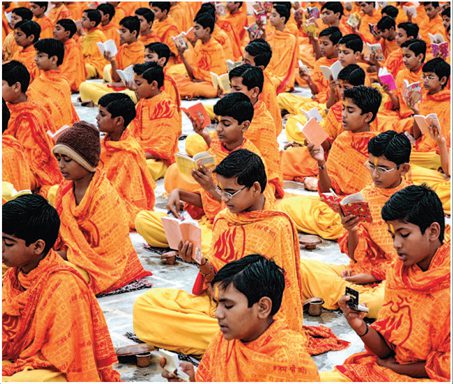

Bringing in Ardent Seekers: Hindus should freely welcome sincere devotees into their religion, not those who already have a firm religion and are content, but those who are seeking, who believe, as millions in the West already believe, in the laws of karma and reincarnation and the existence of the ever-present God that permeates this planet and the universe. Hindus should freely embrace those who believe in the Gods and all we have been speaking about earlier, for whom other religious avenues have proved empty and fruitless. There are certain matured souls for whom the Sanatana Dharma can be the only true religion, who have no other religion and who will seek and seek until they come upon its profound truths, perhaps in an old scripture, or in a temple sanctum during puja or in the eyes of an awakened siddha yogi. These souls we must help. We must teach them of our religion and allow them to fully accept or reject it, to accept it because they know it, or to reject it because they know it and are not ready to meet Maha Ganapati and humbly sit at the feet of this most profound Lord. ¶There are many lost souls on the planet today who die in the physical world—lose their physical body—wander on the astral plane a short time and are caught up immediately in another womb. They have no knowledge of other states of existence or of the workings of reincarnation. They have no time for the bliss of these in-between, astral states. They have no time for assessing their last life and preparing for the next, which they could then enter with new knowledge, no time for inner attunement with the Gods in the inner worlds between death and birth. Instead, they are caught in a constant cycle of flesh, making flesh and living in flesh, with the soul being immersed in ignorance and the darkness of the consciousness of flesh. Hinduism eradicates this cycle by offering knowledge of the states between life and death and then life again. It creates deep impressions within the mind of these individuals, which then bring them out of this syndrome so that they can enjoy months, years, in fact, of education and knowledge in the inner planes of consciousness between births, so that they can come back into a physical body a more awakened soul than when they left their last physical sheath at death. ¶We must not be reluctant to welcome these sincere Hindu souls and to assist them in finding the answers they seek and do not find elsewhere. It is our dharma to help them. Hinduism has always welcomed adoptives and converts. Bring in new people to the religion. Teach them. Help them. Counsel them. Proceed with confidence. Have courage, courage, courage.
The people who are Hinduism share a mind structure. They can understand, acknowledge, accept and love the peoples of all religions, encompass them within their mind as being fine religious people. The Hindu truly believes that there is a single Eternal Path, but he does not believe that any one religion is the only valid religion or the only religion that will lead the soul to salvation. Rather, the Eternal Path is seen reflected in all religions.
To put it another way, the will of God or the Gods is at work in all genuine worship and service. It is said in Hindu scripture that “Truth is one. Paths are many.” The search for Truth, for God, is called the Sanatana Dharma, or the Eternal Path, because it is inherent in the soul itself, where religion begins. This path, this return to the Source, is ever existent in man, and is at work whether he is aware of the processes or not. There is not this man’s search and that man’s search. Where does the impetus come from? It comes from the inside of man himself. Thus, Hinduism is ever vibrant and alive, for it depends on this original source of inspiration, this first impulse of the spirit within, giving it an energy and a vibrancy that is renewable eternally in the now.


Naturally, the Hindu feels that his faith is the broadest, the most practical and effective instrument of spiritual unfoldment, but he includes in his Hindu mind all the religions of the world as expressions of the one Eternal Path and understands each proportionately in accordance with its doctrines and dogma. He knows that certain beliefs and inner attitudes are more conducive to spiritual growth than others, and that all religions are, therefore, not the same. They differ in important ways. Yet, there is no sense whatsoever in Hinduism of an “only path.” A devout Hindu is supportive of all efforts that lead to a pure and virtuous life and would consider it unthinkable to dissuade a sincere devotee from his chosen faith. This is the Hindu mind, and this is what we teach, what we practice and what we offer aspirants on the path.
We often send people back to their own religion, for Hindu doctrine would consider it an unseemly karma to draw someone away simply because he believed differently. To the Hindu, conduct and the inner processes of the soul’s maturation are more essential than the particular religion one may be by the accidents of birth, culture or geography. The Hindu knows that he might unknowingly disturb the dharma of the individual if he pulls him away from his religious roots, and that would cause an unsavory karma for them both. He knows, too, that it is not necessary that all people believe exactly the same way or call God by the same name.
A Religion of Experience
Still, Hinduism is also extremely sectarian, altogether adamant in its beliefs. Its doctrines of karma and reincarnation, its philosophy of nonviolence and compassion, its certainty of mystical realities and experience and its universality are held with unshakable conviction. Perhaps this is due to the fact that Hinduism is a religion more of experience than of doctrine. It prefers to say to its followers, “This is the nature of Truth, and these are the means by which that Truth may be realized. Here are the traditions which have withstood time and proved most effective. Now you may test them in your own life, prove them to yourself. And we will help as we can.” Hinduism will never say, “You must do or believe thusly or be condemned.” In Hinduism it is believed that none is eternally condemned. That loving acceptance and unremitting faith in the goodness of life is another reason I boldly say that Hinduism is the greatest religion in the world.
Within Hinduism, as within every religious system, are the practical means of attaining the purity, the knowledge and the serenity of life. Each Hindu is enjoined to attend a puja every day, preferably at a certain and consistent time. He must observe the laws of virtue and the codes of ethics. He must serve others, support religion within his community. He should occasionally pilgrimage to sacred shrines and temples and partake in the sacraments. If he is more advanced, an older soul, then he is expected, expects of himself, to undertake certain forms of sadhanaand tapas, of discipline and asceticism.
Though it is broad and open in the freedom of the mind to inquire, Hinduism is narrowly strict in its expectations of devotees—the more awakened the soul, the higher the demands and responsibilities placed upon him. And though other systems of belief are fully acceptable mind structures within the structure of the higher mind, there is no way out of Hinduism. There is no excommunication. There is no means of severance. There’s no leaving Hinduism once you have formally accepted and been accepted. Why is that? That is because Hinduism contains the whole of religion within itself. There is no “other religion” which one can adopt by leaving Hinduism, only other aspects of the one religion which is the sum of them all, the Eternal Path, the Sanatana Dharma.
I would say that, if it lacked all the qualities of open-mindedness and compassion and tolerance just mentioned, Hinduism would be the greatest religion on the basis of its profound mysticism alone. No other faith boasts such a deep and enduring comprehension of the mysteries of existence, or possesses so vast a metaphysical system. The storehouse of religious revelations in Hinduism cannot be reckoned. I know of its equal nowhere. It contains the entire system of yoga, of meditation and contemplation and Self Realization. Nowhere else is there such insightful revelation of the inner bodies of man, the subtle pranas and the chakras, or psychic centers within the nerve system. Inner states of superconsciousness are explored and mapped fully in Hinduism, from the clear white light to the sights and sounds which flood the awakened inner consciousness of man. In the West it is the mystically awakened soul who is drawn to Hinduism for understanding of inner states of consciousness, discovering after ardent seeking that Hinduism possesses answers which do not exist elsewhere and is capable of guiding awareness into ever-deepening mind strata.
Hinduism’s Unbounded Tolerance
In apparent conflict, the scriptures written thousands of years ago explain how we should live, and saints and rishis and seers throughout the ages have told us that it is impossible to live that way. So, Hinduism has a great tolerance for those who strive and a great forgiveness for those who fail. It looks in awe at those who succeed in living a life according to its own strict ethics. In Hinduism, we have many, many saints. You don’t have to die to be acknowledged a saint in our religion, you have to live. The Hindus, perhaps beyond all other people on the earth, realize the difficulties of living in a human body and look in awe at those who achieve true spirituality.
The Hindu believes in reincarnation. He believes that he is not the body in which he lives, but the soul or awareness which takes on a body for a definite purpose. He believes he is going to get a better body in a better birth, that the process does not begin and end in a single life, that the process is continuous, reaching beyond the limits that one life may impose on inner progress. Of course, his belief in karma assures him that a better birth, that progress inwardly will come only if he behaves in a certain way. He knows that if he does not behave according to the natural laws, to the Hindu ethics, that he will suffer for his transgressions in a future life, or future lives, that he may by his own actions earn the necessity of a so-called inferior birth, earn the right to start over where he left off in the birth in which he failed.
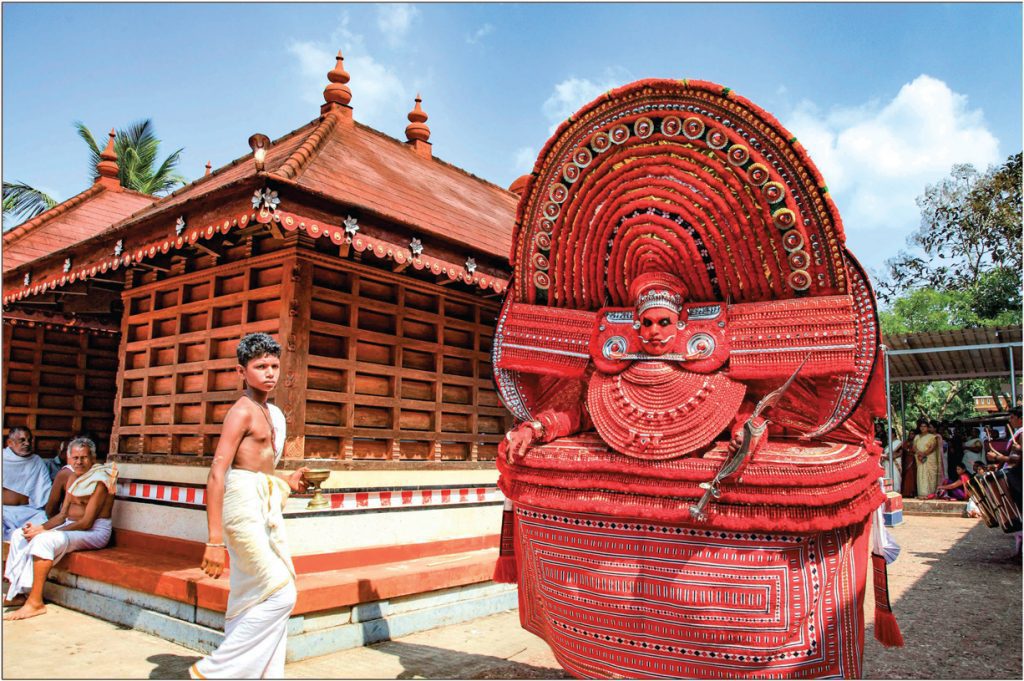

The belief in karma and reincarnation is exclusively Hindu, and yet many people in the world today, whether they call themselves religious or not, are coming to the same conclusions, not from being told to believe but in a natural way, from the inside out. This belief in more than a single life brings to the Hindu a great sense of peace. He knows that the maturity of the soul takes many lives, perhaps hundreds of lives. If he is not perfect right now, then at least he knows that he is progressing, that there will be many opportunities for learning and growing. This eliminates anxiety, gives the serene perception that everything is all right as it is. There is no sense of a time limit, of an impending end or an ultimate judgment of his actions and attitudes. This understanding that the soul evolves gives the Hindu remarkable insight into the human condition and appreciation for all men in all stages of spiritual development.
Hinduism is so broad. Within it there is a place for the insane and a place for the saint. There is a place for the beggar and for those who support beggars. There is a place for the intelligent person and plenty of room for the fool. The beauty of Hinduism is that it does not demand of every soul perfection in this life, a necessary conclusion for those who believe in a single lifetime during which human perfection or grace must be achieved. Belief in reincarnation gives the Hindu an acceptance of every level of humanity. Some souls are simply older souls than others, but all are inherently the same, inherently immortal and of the nature of the Divine.
Hindu Views of the Divine
In Hinduism it is believed that the Gods are living, thinking, dynamic beings who live in a different world, in an inner world in the microcosm within this world in which there exists a greater macrocosm than this visible macrocosm. For the Hindu, surrender to the Divine Will that created and pervades and guides the universe is essential. The Hindu believes that these beings guide our experiences on Earth, actually consciously guide the evolutionary processes. Therefore, he worships these beings as greater beings than himself, and he maintains a subjective attitude toward them, wondering if he is attuned with these grand forces of the universe, if his personal will is in phase with what these great beings would have him do. This gives birth to a great culture, a great attitude, a great tolerance and kindness one to another. It gives rise to humility in the approach to life—not a weak or false humility, but a strong and mature sense of the grand presence and purpose of life before which the head naturally bows.
There are said to be millions of Gods in the Hindu pantheon, though only a few major Deities are actually worshiped in the temples. That God may be worshiped as the Divine Father or a Sainted Mother or the King of kings is one of the blessings of Hinduism. It offers to each a personal and significant contact, and each Hindu will choose that aspect of the Deity which most appeals to his inner needs and sensibilities. That can be confusing to some, but not to the Hindu. Within his religion is monism and dualism, monotheism and polytheism, and a rich array of other theological views.
God in Hinduism is accepted as both transcendent and immanent, both beyond the mind and the very substratum of the mind. The ideal of the Hindu is to think of God always, every moment, and to be ever conscious of God’s presence. This does not mean the transcendent God, the Absolute Lord. That is for the yogi to ponder in his contemplative discipline. That is for the well-perfected Hindu who has worshiped faithfully in the temples, studied deeply the scriptures and found his satguru.
For most Hindus, God means the Gods, one of the many personal devas and Mahadevas which prevail in our religion. This means a personal great soul which may never have known physical birth, a being which pervades the planet, pervades form with His mind and Being, and which guides evolution. Such a God is capable of offering protection and direction to the followers of Hinduism. The Hindu is supposed to think of God every minute of every day, to see God everywhere. Of course, most of us don’t think of God even one minute a day. That’s the reason that each Hindu is obliged to conduct or attend at least one religious service, one puja or ceremony, every day in his temple or home shrine. This turns his mind inward to God and the Gods.
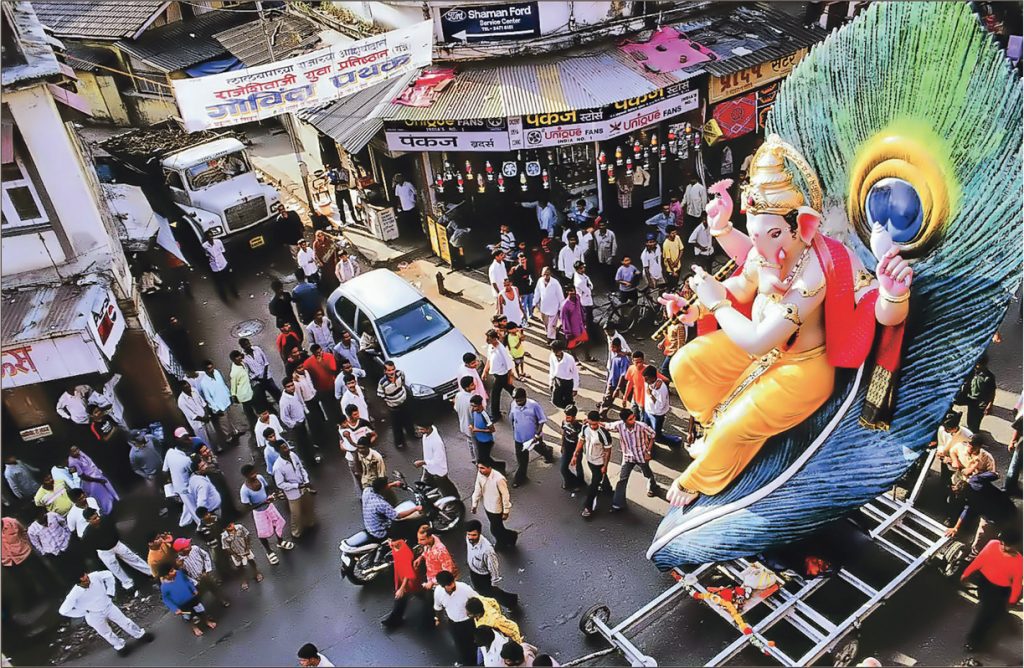

Hinduism, Sanatana Dharma, is an Eastern religion, and the Eastern religions are very different from those of the West. For one thing, they are more introspective. Hinduism gave birth to Buddhism, for Buddha was born and died a good Hindu. And it gave birth to other religions of the East, to Taoism, to Jainism, to Sikhism and others.
Three Pillars: Temples, Philosophy, Preceptors
There are three distinct aspects of Hinduism: the temples, the philosophy and the satguru. It is very fortunate that in the last two decades Hindu temples have nearly circumferenced the world. There are temples in Europe, in North America, in South America, Australia, in Africa and throughout Southeast Asia. The Hindu temple and stone images in it work as a channel for the Deity, for the Gods, who hover over the stone image and, in their subtle etheric forms, change people’s lives through changing the nerve currents within them through their darshana. People come to a sanctified temple and go away, and in that process they are slowly changed from the inside out. They have changed because their very life force has changed, their mind has been changed and their emotions have undergone a subtle transformation. The temples of Hinduism are magnificent in their immensity and in their ability to canalize the three worlds, the First World of physical, outer existence and the inner Second and Third Worlds.
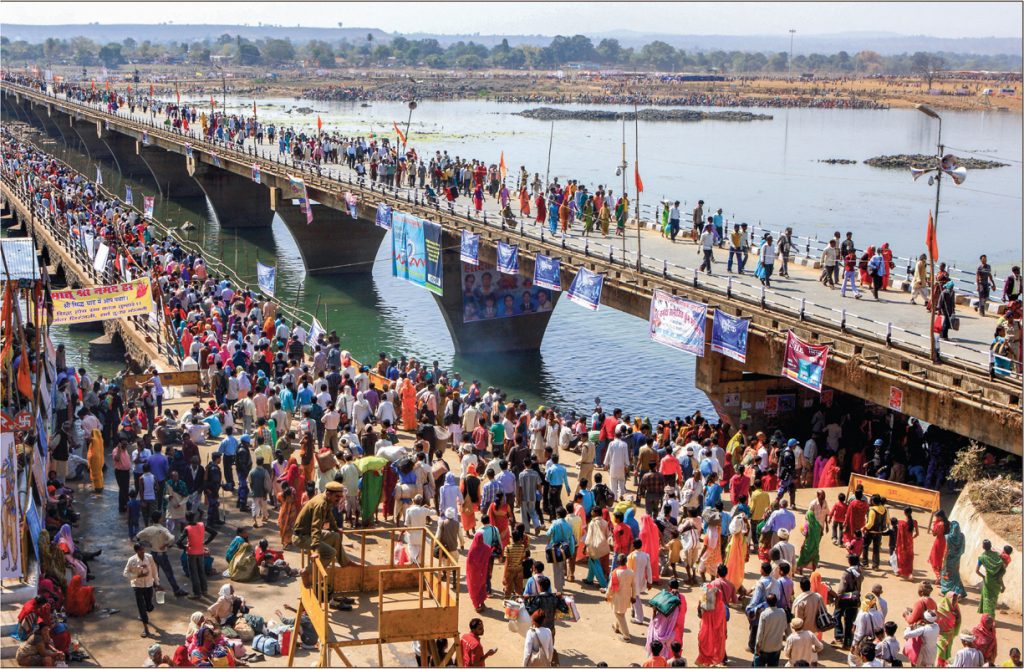

Hindu temples are not centered around a priest or minister, though there may be a holy man associated with a temple whose advice is cautiously and quietly sought. There is no sermon, no mediator, no director to guide the worship of pilgrims. The temple is the home of the Deities, and each devotee goes according to his own timing and for his own particular needs. Some may go to weep and seek consolation in times of sorrow, while simultaneously others will be there to rejoice in their good fortune and to sing God’s name in thanksgiving. Naturally, the sacraments of name-giving and marriage and so forth are closely associated with the temple. One has only to attend a Hindu temple during festival days to capture the great energy and vitality of this ancient religion.
In its second section, philosophy, Hinduism has influenced the deep religious thinkers of all cultures through known history. There is not a single philosophy which can be labeled “Hinduism.” Rather, it is a network of many philosophies, some seeming to impertinently contradict the validity of others, yet on deeper reflection are seen as integral aspects of a single, radiant mind flow. In the area of philosophy must be included the enormous array of scripture, hymns, mantras, devotional bhajana and philosophical texts which are certainly unequaled in the world.
In the natural order of things, temple worship precedes philosophy. It all starts with the temple, with this sacred house of the Deities, this sanctified site where the three worlds communicate, where the inner and outer mesh and merge. It is there that devotees change. They become more like the perfect beings that live in the temple, become the voice of the Deity, writing down what is taught them from the inside, and their writings, if they are faithful to the superconscious message of the God, become scripture and make up the philosophies of Hinduism. The philosophies then stand alone as the voice of the religion. They are taught in the universities, discussed among scholars, meditated upon by yogis and devout seekers. It is possible to be a good Hindu by only learning the philosophy and never going to the temple, or by simply going to the temple and never hearing of the deeper philosophies.
Hinduism has still another section within it, and that is the guru—the teacher, the illuminator, the spiritual preceptor. The guru is the remover of darkness. He is one who knows the philosophy, who knows the inner workings of the temple, and who in himself is the philosopher and the temple. The guru is he who can enliven the spirit within people. Like the temple and the philosophy, he stands alone, apart from the institutions of learning, apart from sites of pilgrimage. He is himself the source of knowledge, and he is himself the pilgrim’s destination.
Should all the temples be destroyed, they would spring up again from the seeds of philosophy, or from the presence of a realized man. And if all the scriptures and philosophical treatises were burned, they would be written again from the same source. So Hinduism cannot be destroyed. It can never be destroyed. It exists as the spirit of religion within each being. Its three aspects, the temple, the philosophy and the satguru, individually proficient, taken together make Hinduism the most vital and abundant religion in the world.
Hinduism’s Fathomless Diversity
Hinduism has a grand diversity among its many sects. That diversity is itself a strength, showing how broad and encompassing Hinduism is. It does not seek to have all devotees believe exactly alike. In fact, it has no central authority, no single organized institution which could ever proclaim or enforce such sameness. There is an immense inner unity, but the real strength and wisdom of Hinduism is its diversity, its variety. There are so many sects within Hinduism that you could spend a lifetime studying them and never begin to assess them all. More is there than any single human being could assimilate in a single lifetime. Hinduism, therefore, has the magnetism to draw us back into its immensity life after life. Each sect may be said to be a full religion in its own right, with all the increments of faith, with no necessary part missing. Therefore, each sect works for the individuals within it completely, and each tolerates all the other sects. It does not totally divorce itself from the other sects, denying their beliefs, but simply separates to stress or expound a limited area of the vast philosophy, apart from all others, to be understood by the limited faculties of man.
These various sects and divisions within Hinduism all spring from a one source. Most Hindus believe in the transcendental God as well as the personal Lord or God, and yet there is within the boundaries of the faith room for the non-believer, for the atheist or for the agnostic who is assessing and developing his beliefs. This brings another unique asset to our religion—the absence of heresy. There is no such thing as a heretic in Hinduism, for there is no single right perspective or belief. Doctrine and sadhana are not considered absolutes, but the means to an absolute end, and they can be tailored to individual needs and natures. My satguru would say that different prescriptions are required for different ailments.
In Hinduism there is no person or spiritual authority who stands between man and God. In fact, Hinduism teaches just the opposite. The priests in the temples are the servants of the Deity, the helper, the keeper of the Gods’ house. He prepares and purifies the atmosphere of the temple, but he does not intervene between the devotee and his God—whichever of the many Gods within our religion that he may be worshiping. Without a mediator, responsibility is placed fully upon the individual. There is no one to intercede on his behalf. He is responsible for his actions, for his thoughts, for his emotions, for his relationship with his God. He must work out his beliefs from the inside, without undue dependence upon external influences. Of course, there is much help, as much as may be needed, from those who have previously gone through what he is now going through. It is not enough that he adopts an authorized dogma. He must study and bring the teachings to life from within himself.
Within the philosophy, each philosopher proclaims that God can be found within man if man practices the proper precepts of yoga and delves within himself through his kundalini force. The guru himself teaches the awakening of that force and how God can be realized in His transcendental as well as His personal aspect within the sphere of one’s own personal experience in this very lifetime if he but pursues the path and is obedient.
Hinduism is unique because God and man, mind and God, instinctive mind, intellectual mind and superconscious mind, can merge as one, according to the evolution of the individual. Each one, according to his own self-created karma, has his own fulfillment. Those in the first stages of evolution, whose interests and experiences are basically instinctive, who possess little intellect or mental prowess, are guided by their emotions and impulses, are generally fearful. They have a personal experience of the Deity in the temple, but it is generally a fearful experience. They are afraid of God. Alongside of them during a puja is a great rishi who has had many hundreds of lives on this planet. He has his own personal experience of God, but it is an experience of love, of oneness and of union. There they are, side by side. Each experience of God is as real to one as to the other. There is no one in-between, no arbitrator of the experience to compel the one to see God exactly as the other one does.
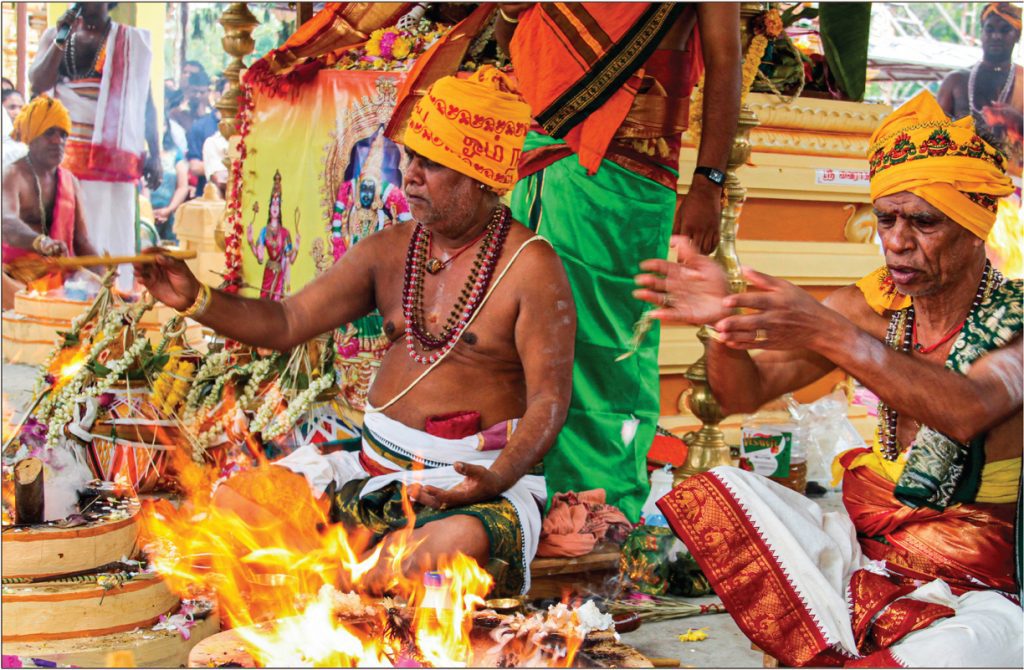

Within Hinduism Is a Place for Everyone
Hinduism is as broad as humanity is, as diverse as people are diverse. It is for the rich and the poor, for the mystic and the materialist. It is for the sage and the fool. None is excluded. In a Hindu temple you can find every variety of humanity. The man of accumulated wealth is there, supporting the institutions that have grown up around the temple, seeking to spend his abundance wisely and for its best purpose so that good merit may be earned for his next life. The pauper is there, begging in hopes that perhaps he will eat tomorrow and the God will inspire some devotee to give him a coin or two. So, a Hindu temple is a reflection of life, set in the midst of the life of the community. It is not making an effort to be better than the life of the village, only to serve that life and direct it to its next stage of evolution. The same Hindu mind which can consume within it all the religions of the world can and does consume within it all of the peoples of the world who are drawn to the temple by the shakti, the power, of the temple. Such is the great, embracing compassion of our religion.
The greatness of Hinduism cannot be compared with other religions. There is no basis for comparison. Hinduism, the Eternal way or Sanatana Dharma, has no beginning, therefore will certainly have no end. It was never created, and therefore it cannot be destroyed. It is a God-centric religion. The center of it is God. All of the other religions are prophet-centric. The center of those religions is a great saint or sage, a prophet, a messenger or messiah, some God-Realized person who has lived on Earth and died. Perhaps he was born to create that particular sect, that particular religion, needed by the people of a certain part of the world at a certain time in history. The Hindus acknowledge this and recognize all of the world’s religious leaders as great prophets, as great souls, as great incarnations, perhaps, of the Gods, or as great beings who have through their realization and inward practices incarnated themselves into, or transformed themselves into, eminent religious leaders and attracted devotees to them to give forth the precepts of life all over again and thus guide a tribe or a nation or a race into a better way of life.
The Hindu mind can encompass this, appreciate it, for it is firmly settled in a God-centric religion. The center of Hinduism is the Absolute, the timeless, formless, spaceless God who manifests as Pure Consciousness and as the most perfect form conceivable, the Primal Soul. He radiates out from that form as a myriad of Gods and Goddesses who inhabit the temples and bless the people, inspire the scriptures, inspire the spiritual leaders and uplift humanity in general. It is a one God in many forms. We recently heard a sannyasini at the Ganesha Temple in New York describe this in a most wonderful and profound way, “Siva is the fire. Shakti is the heat of that fire. Ganesha is the red color of that fire. Murugan is the light of that fire.”
There are nearly a billion Hindus in the world today. That’s roughly four times the population of the entire United States. Every sixth person on the planet is a Hindu. Hinduism attends to the needs of each one. It is the only religion that has such breadth and depth. Hinduism contains the Deities and the sanctified temples, the esoteric knowledge of inner states of consciousness, yoga and the disciplines of meditation. It possesses a gentle compassion and a genuine tolerance and appreciation for other religions. It remains undogmatic and open to inquiry. It believes in a just world in which every soul is guided by karma to the ultimate goal of Self Realization, leading to moksha, freedom from rebirth. It rests content in the knowledge of the divine origin of the soul, its passage through one life and another until maturity has been reached. It offers guidance to all who take refuge in it, from the nonbeliever to the most evolved maharishi. It cherishes the largest storehouse of scripture and philosophy on the earth, and the oldest. It is endowed with a tradition of saints and sages, of realized men and women, unrivaled on the earth. It is the sum of these, and more, which makes me boldly declare that Hinduism is the greatest religion in the world.


